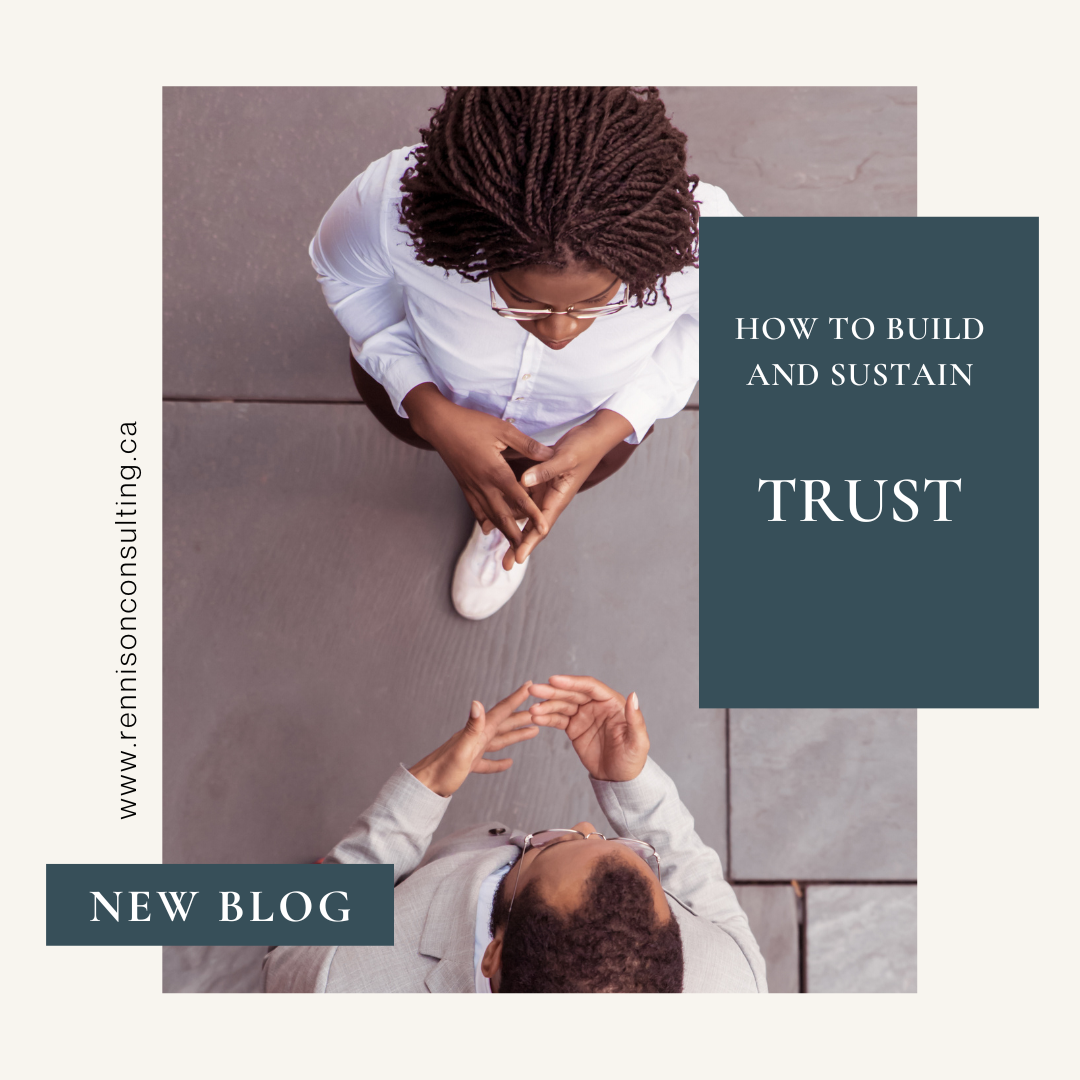|
Trust is the glue that holds great leaders and their teams together. It forms the bedrock upon which effective communication, collaboration and innovation thrive. This blog discusses the definition of trust, its importance and how to build and sustain trust with your staff. What is Trust and Why is it Important? Trust is the firm belief in the reliability, truth, ability or strength of someone or something. It is the basis of almost everything we do as humans. When we trust someone, we choose to risk making something we value vulnerable to another person’s actions. At work this may look like bringing up concerns about your workload with your manager, bringing up new ideas for a key project or discussing an impactful disagreement with a co-worker. For leaders, trust is one of the most essential forms of capital that you have and it has a substantial impact on the commitment and satisfaction of your team. Trust is easily lost and not easily gained. With this in mind, it’s important to build a strong foundation of trust from day one with your staff and when trust is broken, do all that you can to rebuild that trust as soon as possible. How to Build & Sustain Trust with your Staff Creating a strong bond of trust with your staff is like nurturing a plant – it takes time, care and the right ingredients. Feltman (2009) identifies four distinctions of trust, which describe how leaders can develop trust with their staff. 1. Sincerity
2. Competence
3. Reliability
4. Care
It can be helpful to reflect critically on past situations through the lens of the four distinctions above to identify where trust was broken. This will help give you insight into where you need to develop your relationships with your staff. Along the way, we’re destined to break other’s trust and when we do we want to work at rebuilding it as soon as possible. Reina’s Trust and Betrayal Model provides some guidance on how to heal from betrayal. When trust is broken, you can support your team members through the 7 steps below. 1. Observe and acknowledge what has happened: Own up and admit when you’ve done or said something that may break trust with an individual or your team. Talk with those whose trust has been broken to fully acknowledge what has happened. 2. Allow feelings to surface: Allow your team to express their feelings about the betrayal of trust and listen to what they are saying with empathy and curiosity. 3. Get support: Moving through betrayal can be difficult on one’s own. Encourage your team to lean on their support system and talk about what has happened. 4. Reframe the experience: Use reframing questions to support your team to make meaning about what has happened. Also ask them of yourself to gain a better understanding. Ask questions like, ‘Why did this happen?’ ‘What can I take from this experience? What lessons do I need to learn?’, ‘What options do I have for responding to this situation?’ or ‘What would I do differently next time?’. 5. Take responsibility: Explore your role in the betrayal and take responsibility for your actions. 6. Forgive yourself and others: Forgive yourself and others who may have played a role in the betrayal occurring. 7. Let go and move on: When you’re able to reflect on the betrayal and experience peace about the situation, it is time to move on and continue to build up trust with your team. Summary Trust is a vital force that binds great leaders and their teams. It serves as the foundation upon which effective communication, seamless collaboration, and innovative thinking flourish. Throughout this exploration, we've delved into the heart of trust – its essence, significance, and the art of cultivating it within your staff. Trust, simply put, is the unwavering belief in the reliability, truth, ability, or strength of someone or something. It underpins the decisions we make, the actions we take, and the relationships we form. Trust at work can be as simple as sharing your workload concerns with your manager, suggesting novel ideas for a critical project, or candidly addressing disagreements with colleagues. For leaders, trust becomes an invaluable currency that shapes the dedication and contentment of their teams. Yet, trust is delicate. Easily shattered, it demands diligent care and effort to rebuild once compromised. Establishing a bedrock of trust from the outset with your staff is a strategic imperative. When trust falters, swift action to mend it becomes a priority. So, how can you construct and sustain this essential trust with your staff? Feltman's four dimensions of trust – sincerity, competence, reliability, and care – offer a roadmap. Honest communication, demonstrated ability, consistency in meeting commitments, and genuine concern for others' interests are the cornerstones to cultivate. Stumbles are inevitable, leading to broken trust. When this occurs, Reina's Trust and Betrayal Model illuminates a path to recovery. Acknowledge the transgression, allow emotions to surface, seek support, reframe the experience, shoulder responsibility, extend forgiveness to yourself and others, and finally, let go and move forward. Healing and rebuilding are possible. In the grand narrative of leadership, trust isn't just a buzzword; it's the essence that propels teams towards success. With trust as your compass, the potential to inspire, uplift, and create enduring impact knows no bounds. So, as we conclude this discussion, remember that trust is more than just an element of leadership – it's the heartbeat that sustains its rhythm, propelling leaders and teams toward shared aspirations and boundless horizons. Resources
Feltman, C. (2021, July 15). The Thin Book of Trust Frei, F. X. (2021, August 31). Everything Starts with Trust. Harvard Business Review. https://hbr.org/2020/05/begin-with-trust Lewis, A. (2022, October 26). Good Leadership? It All Starts With Trust. Harvard Business Publishing. https://www.harvardbusiness.org/good-leadership-it-all-starts-with-trust/ Reina, D., & Reina, M. (2015, February 2). Trust and Betrayal in the Workplace. National Geographic Books.
0 Comments
|
AuthorErin Rennison Archives
August 2023
Categories |

 RSS Feed
RSS Feed
